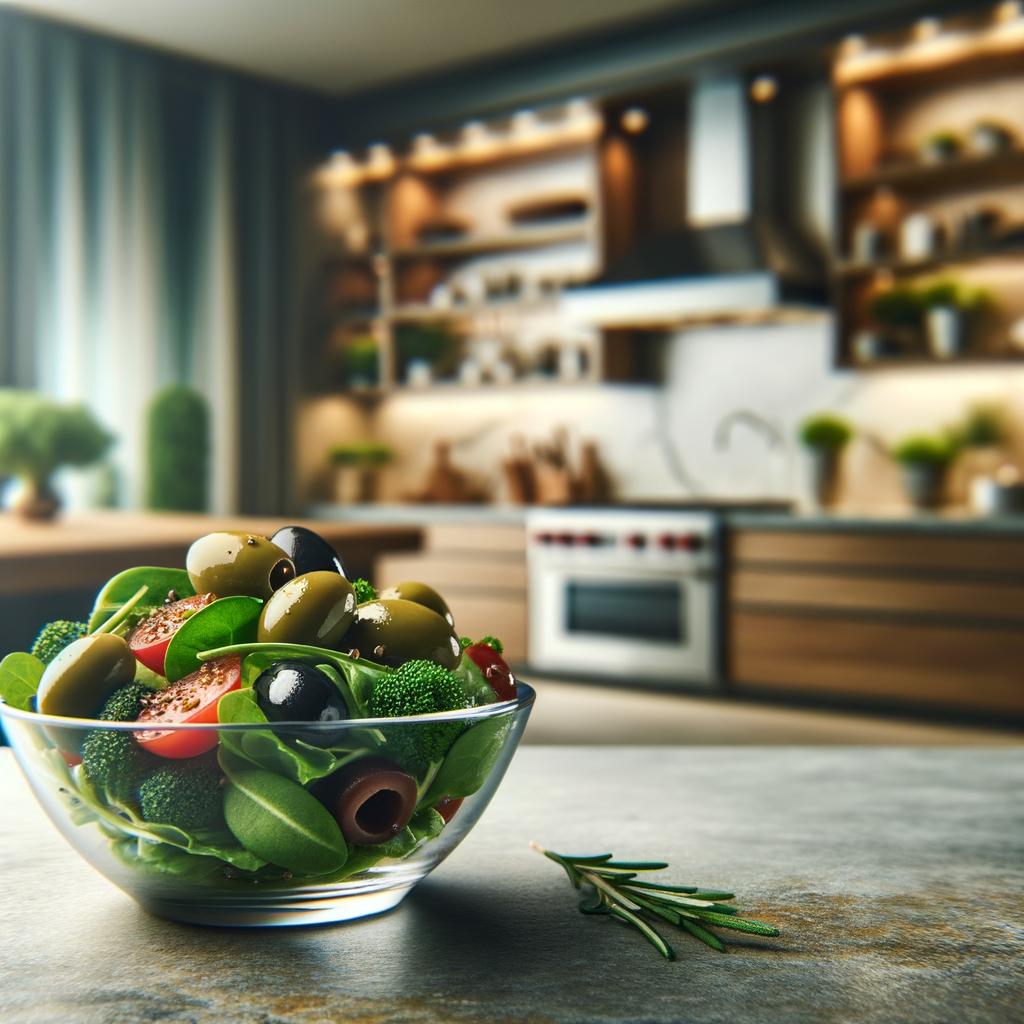Olive Salad

Description Olive salad is a delightful medley that brings together the earthy, briny flavors of olives with a vibrant mix of other ingredients. Its appearance is a symphony of colors - the deep green of the olives, the red of the pimentos, the white of the garlic and the golden hue of the olive oil. The texture is a satisfying mix of the firm bite of the olives, the crunch of the pickled vegetables, and the smoothness of the oil. The flavor profile is a complex dance of salty, tangy, and slightly bitter notes, with the occasional sweetness from the pickled vegetables. What sets olive salad apart is its versatility. It can be used as a condiment, a side, or even a main dish, and it is as at home in a sandwich as it is on a charcuterie board.
Primary Uses Olive salad is a key component in many Mediterranean dishes, most notably the Muffuletta sandwich, a New Orleans classic with Italian roots. It's also a staple in Italian antipasti, and a star player in Greek salads. Outside of the culinary world, olive salad has been used for its medicinal properties, particularly in traditional Mediterranean cultures. Olives and olive oil are known for their heart-healthy fats, and the other ingredients in the salad often have their own health benefits.
History The history of olive salad is as rich and varied as the salad itself. Olives have been cultivated in the Mediterranean for thousands of years, and their use in salads dates back to ancient times. The specific combination of ingredients that we now know as olive salad likely originated in Italy, but it gained popularity in the United States through the Muffuletta sandwich. This sandwich was created by Italian immigrants in New Orleans, who brought their love of olives and pickled vegetables with them to their new home. Over time, the use of olive salad has evolved and expanded, and it is now a beloved ingredient in cuisines around the world.
Nutritional Information Olive salad is a nutritional powerhouse. Olives and olive oil are high in monounsaturated fats, which are heart-healthy and can help lower bad cholesterol levels. They're also a good source of vitamin E, iron, copper, and dietary fiber. The pickled vegetables in the salad add a dose of vitamins A and C, as well as additional fiber. However, due to the high salt content in the pickled ingredients and olives, it's important to consume olive salad in moderation. Compared to similar ingredients, olive salad is a more nutrient-dense option, thanks to the variety of ingredients it contains.

